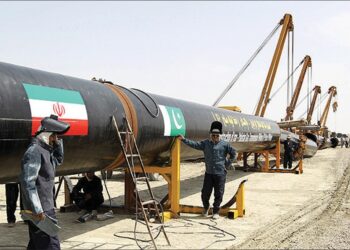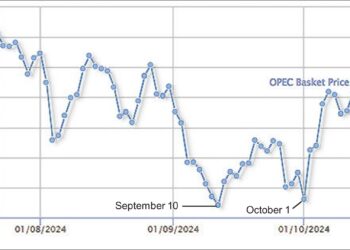But Seoul is going far beyond the oil issue and last week imposed curbs on exports to Iran out of apparent fear that Iran won’t be able or willing to pay for purchases.
Officials said the decision to stop buying any Iranian oil was made because South Korean tankers would no longer be able to get insurance for carrying Iranian oil after July 1 under the new EU policy.
“It is impossible to choose Iranian crude under the EU insurance embargo,” one Korean refinery executive told Reuters.
The restrictions on sales to Iran were announced last week by the Korea International Trade Association (KITA). It said exports would be authorized only if payment is to be made within 180 days. KITA said it hoped this would be temporary and the restrictions could be lifted “if trading conditions with Iran improve sharply.”
Korea has been paying for Iranian oil in won, the South Korean currency, with the payments deposited in accounts in Seoul. Iranian buyers of such Korean products as cars, steel and electronic goods then draw from the won account to pay for those South Korean products. But with Korean refiners halting purchases of Iranian crude, no more money will be fed into that account and Koreans are fearful Iran will then not be able to pay.
US banking restrictions have made it very difficult to move funds between Iran and Korea. That was what prompted the use of the won account to begin with.
South Korean tankers can theoretically get South Korean insurance, but the South Korean insurers all re-insure their policies in Europe, and that re-insurance ends July 1, so the South Korean insurance firms will stop insuring tankers doing business with Iran then.
The Japanese government has decided to re-insure its own tankers and the Indian government is debating doing that. But the South Korean government has not seriously considered that option. Officials have not said why they won’t re-insure South Korean tankers, but officials have made clear to Korean reporters that re-insurance is not a possibility.
South Korea has four refiners. Two of them—SK Energy and Hyundai Oilbank—have been importing Iranian crude. Sources said both firms will land no more oil after July 1, which means their last purchases were likely made in the first week of June.
In the first half of 2011, South Korea bought an average of 244,000 barrels a day from Iran. That was about 10 percent of Iran’s exports as well as 10 percent of South Korea’s oil imports.
To replace Iranian crude, the South Korean refineries have so far this year raised purchases 23 percent from Kuwait, 14 percent from Qatar, 9 percent from the UAE and 8 percent from Saudi Arabia.

















